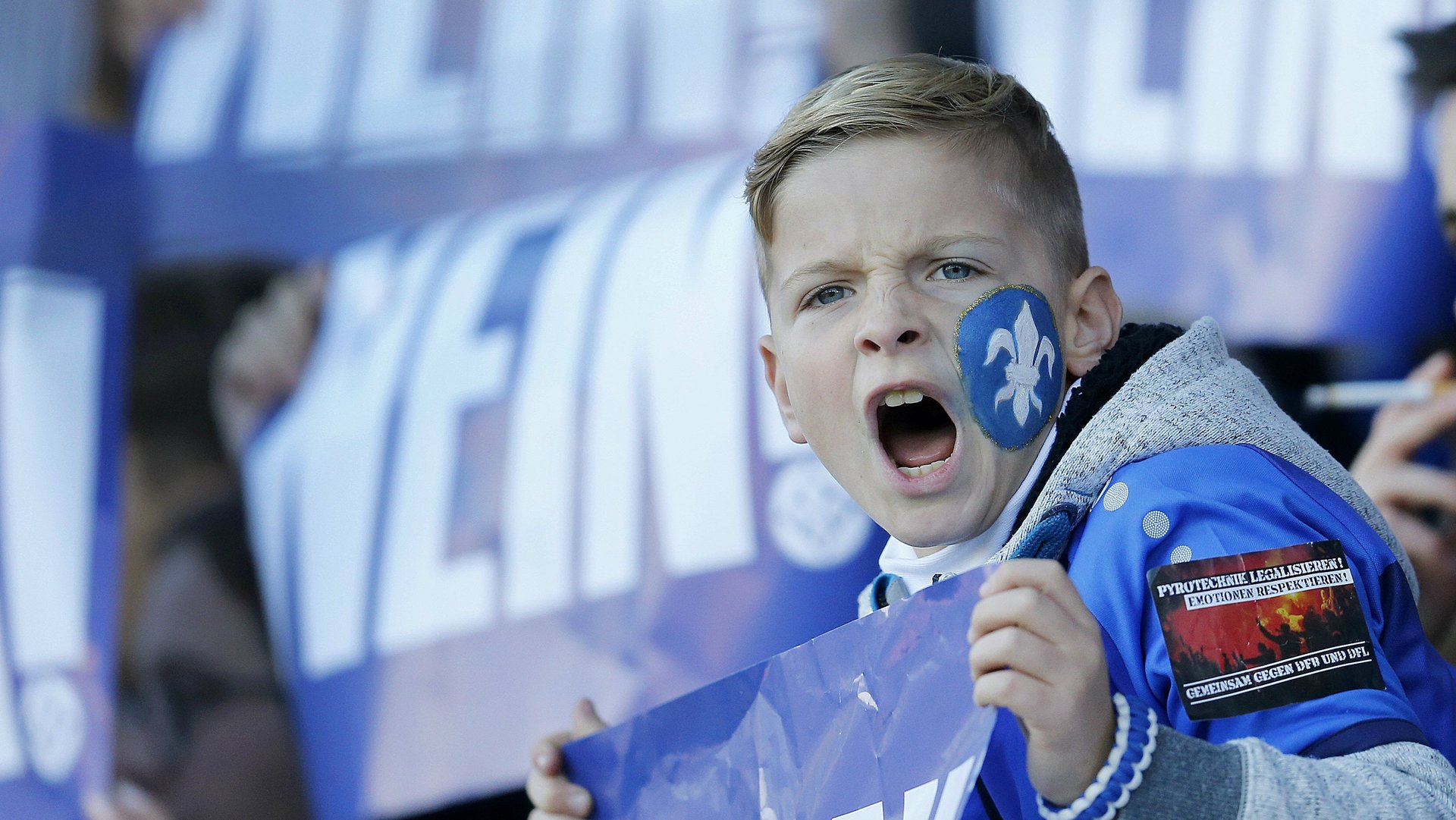Germany’s most hated soccer team is everything people don’t like about mixing business and sports
Red Bull is causing a crisis in European soccer.


Red Bull is causing a crisis in European soccer.
RB Leipzig, a German soccer team owned by the Austrian energy drink maker Red Bull GmbH, has existed for less than a decade. Yet the team is tied for first place in Germany’s top league, taking down opponents that have been around for more than a century.
RB Leipzig are winning with big money and innovative tactics. But most Germans absolutely hate them for flouting German soccer’s fan-first traditions. It’s Moneyball without the underdog story.
Dietrich Mateschitz, the founder of Red Bull, started the team in 2009 when he purchased the license of the semi-professional team SSV Markranstädt. Immediately, the team started skirting the rules of German soccer. Mateschitz, who also owns the New York Red Bulls and Red Bull Salzburg, almost certainly would have liked to rename the team Red Bull Leipzig. Unfortunately for him, German soccer teams are not allowed to have sponsors in their team name. To get around this, Mateschtiz named the team “RasenBallsport Leipzig”—”RasenBallsport” means lawn ball—and uses the acronym “RB” for their merchandise. Who could guess what that stands for?
Next, Mateschitz figured out a way around German soccer’s pesky 50+1 rule. This rule is the pride of German soccer. Whereas major sports teams in other countries are usually controlled by wealthy owners, in Germany, fans have the ultimate say concerning the management of even the biggest soccer teams. Fans participate in management by becoming dues-paying members of the team—usually for an annual fee of well under €100 ($105). The rule, which requires that 50% plus one share (hence “50+1”) of the team is owned by fans, has also kept down ticket prices, because teams want to keep their fans-slash-owners in good spirits.
RB Leipzig operates very differently. They set their annual fee at €800, a barrier to entry that has kept membership down; today, the team has less than 20 members, while some of their competitors have over 100,000. And the vibe is ultra-corporate: all seven of the team’s founding members worked for Red Bull. Essentially, RB Leipzig was designed to avoid the fan control that made German soccer unique.
Buoyed by Mateschitz’s financial resources, RB Leipzig rocketed up the rungs of German soccer. The team was in the fifth division of German soccer when it was founded (European soccer leagues have different levels that teams move up and down depending on performance). Within seven years, RB Leipzig reached the top league and is now competing to win the title. It is an unprecedented accomplishment, and along with all that ire, RB Leipzig is now also drawing dozens of thousands of fans:
Those that don’t root for RB Leipzig are not thrilled, and protests of the team’s unabashed commercialism have erupted across Germany. Fans of rival teams have refused to attend their games, or remained silent during large portions of play to show their disdain. On Sep. 25, 2016, fans of the team Cologne delayed a game against RB Leipzig by blocking Leipzig’s team bus from arriving at the stadium.
Though loathed by most German fans, RB Leipzig is clearly managed with unusual wisdom.
“When backed by such fortunes, teams waste a lot of it on [buying players],” says soccer analyst Tom Payne. “But Leipzig’s recruitment strategy and scouting network is so effective that they’ve built an excellent [team] for relatively low sums of money.” Payne says RB Leipzig invests in cheap young players that fit their style of play, avoiding the pitfall of going for big names, a common mistake of poorly run teams.
RB Leipzig are the apotheosis of business eating sports: a branded team is succeeding by breaking with tradition and making decisions analytically. The owner of another German team suggested RB Leipzig is just a team built to “push up the revenue of Red Bull, and nothing else.” The fans agree: “My club was founded in order to play football,” a fan of another team told the Daily Mail. “RB Leipzig was founded to make money. To sell an energy drink.”
But maybe sports fans in the modern age shouldn’t really expect anything else.